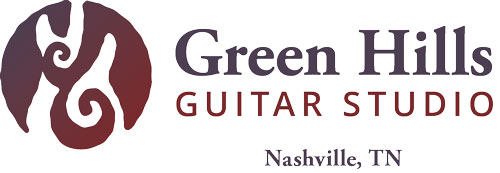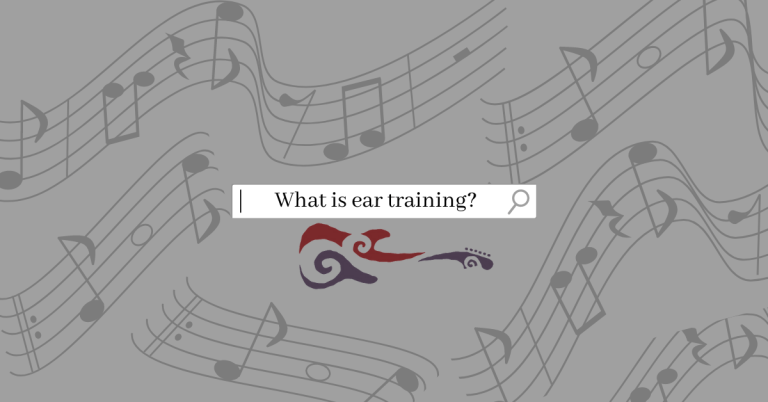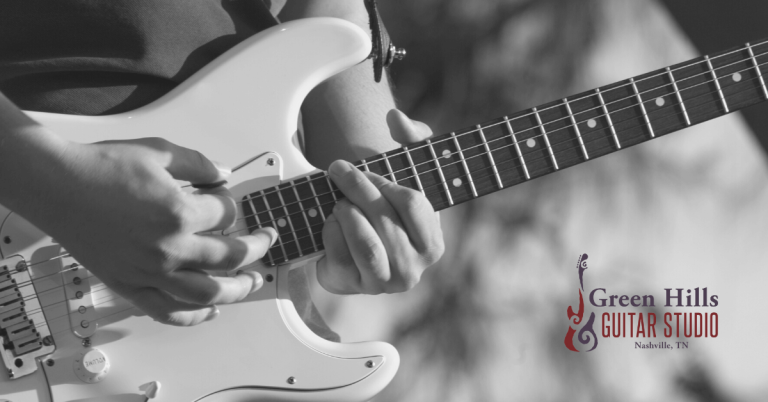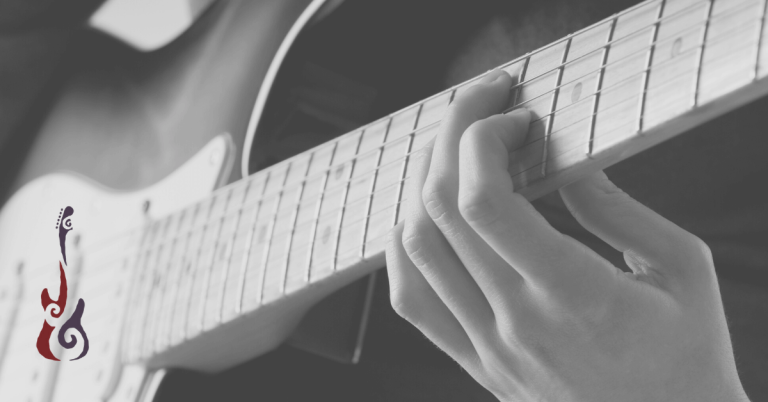A Practical Guide To Practicing Scales
Playing scales is a fundamental aspect of guitar technique that can significantly enhance your playing abilities. Whether you’re a beginner or an experienced guitarist, incorporating effective scale practice into your routine is essential for improving finger strength, technique, and overall musicality. In this guide, we’ll explore practical tips to help you make the most of your scale practice sessions.
Benefits of Routine Scale Practice
Practicing scales on the guitar offers a range of benefits that contribute to your overall development as a guitarist. Here are some key advantages:
- Technical Proficiency: Scales are excellent for building and improving your technical skills. Regular practice helps enhance your finger strength, agility, and coordination, making it easier to navigate the fretboard.
- Fretboard Familiarity: Learning scales in different positions on the fretboard increases your familiarity with the instrument. This knowledge enables you to move effortlessly between various parts of the neck, improving your overall confidence.
- Muscle Memory: Repetitive scale practice helps develop muscle memory. This is essential for executing complex musical passages or solos accurately and without hesitation.
- Improves Ear Training: Scales play a crucial role in ear training. By repeatedly playing and listening to scales, you become more attuned to different intervals and the overall sound of different keys.
- Builds Speed and Dexterity: Scales are effective for building speed and finger dexterity. As you increase the tempo of your scale practice, you develop the ability to play faster and more fluidly.
- Understanding Music Theory: Scales are the foundation of music theory. Learning scales helps you understand the relationships between notes, intervals, and keys, providing a solid theoretical foundation for your musical journey.
- Prepares for Improvisation: Mastering scales is essential for improvisation. It equips you with the tools to create spontaneous musical ideas, solos, and embellishments during performances.
Practicing scales is a fundamental aspect of guitar playing that contributes to your technical, theoretical, and musical growth. It lays the groundwork for a well-rounded and proficient guitarist.
12 Tips for How To Practice Scales
Perfecting scales is key for any guitarist, no matter your skill level. Use these 12 tips to get the most out of your scale practice. Let’s enhance your playing—follow these straightforward tips now!
1. Start slow and focus on accuracy
The journey to mastering scales begins with a slow and deliberate approach. Initiate your practice at a comfortable tempo, focusing on each note’s clarity and precision. Starting slow allows you to develop muscle memory and ensures that you build a solid foundation for faster tempos.
2. Use a metronome
A metronome is a guitarist’s best friend. As you become more comfortable with a particular scale, gradually increase the tempo over time. The metronome helps you maintain a steady rhythm, track your progress, and refine your sense of timing and internal pulse.
3. Practice with intention
Instead of mindlessly running through scales, focus on specific aspects of your playing. Work on alternate picking, legato, or string skipping to refine your technique and address specific areas that need improvement.
4. Explore different fretboard positions
Expand your familiarity with scales by learning them in various positions on the fretboard. This not only improves your knowledge of the scale but also enhances your ability to navigate the guitar neck fluently.
5. Experiment with rhythm
Inject life into your scale practice by experimenting with different rhythmic patterns. Play triplets, sixteenth notes, or syncopated rhythms to enhance your rhythmic skills and add a musical dimension to your playing.
6. Combine scales for smooth transitions
Connect scales that share common notes or are musically related. This approach helps you transition smoothly between scales and deepens your understanding of the musical connections between them.
7. Play along with backing tracks
Make your scale practice sessions more enjoyable and practical by using backing tracks in various keys and styles. This simulates real musical contexts, improving your adaptability and musicality.
8. Practice. Every. Key.
Avoid limiting yourself to a single key. Practicing scales in different keys enhances your understanding of music theory and equips you to play in a variety of musical situations.
9. Work on finger independence
Achieving finger independence is crucial for playing scales smoothly and efficiently. Pay close attention to each finger’s movement and incorporate exercises that enhance finger dexterity.
10. Don’t forget practical application
Context is key. Practice scales in the context of songs or musical pieces you’re learning. This approach allows you to see how scales are used in actual music, reinforcing their practical application.
11. Record yourself for objective evaluation
Recording your practice sessions provides an objective view of your playing. It helps identify areas that need improvement and allows you to track your progress over time.
12. Stay consistent!
Consistency is the key to improvement. Even short, focused practice sessions each day can yield better results than sporadic, lengthy sessions. Make scale practice a regular part of your routine to see continuous improvement.
Two Techniques To Practice Scales
In this quick five-minute lesson, Sam Farkas breaks down two great ways to practice scales. It’s a great way to play more musically while improving your fretboard awareness.
The Coda
In conclusion, effective scale practice goes beyond mechanical execution. Strive for precision, clarity, and musicality in your playing. By incorporating these tips into your practice routine, you’ll be well on your way to mastering scales and elevating your guitar playing to new heights. Happy practicing!
Interested in Taking Guitar Lessons?
Ready to take your guitar playing to the next level? Contact Green Hills Guitar Studio for personalized lessons! Whether you’re a beginner or an intermediate guitar player, our experienced instructors can help you achieve your musical goals. Book your private lesson online or, if you’re in Nashville, TN, join us in person for a tailored learning experience. Let’s make music together!






